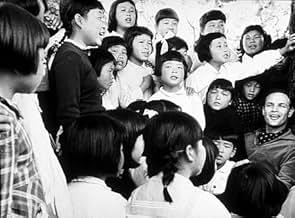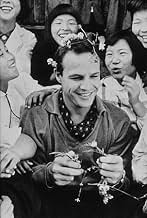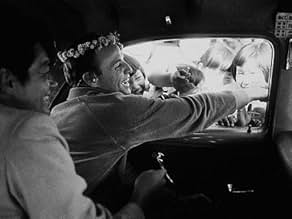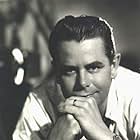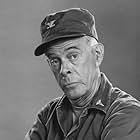IMDb RATING
6.6/10
3.9K
YOUR RATING
In post-WWII Japan, an American captain is brought in to help build a school, but the locals want a teahouse instead.In post-WWII Japan, an American captain is brought in to help build a school, but the locals want a teahouse instead.In post-WWII Japan, an American captain is brought in to help build a school, but the locals want a teahouse instead.
- Awards
- 1 win & 9 nominations total
Machiko Kyô
- Lotus Blossom
- (as Machiko Kyo)
Harry Morgan
- Sgt. Gregovich
- (as Henry {Harry} Morgan)
Carlo Fiore
- Soldier
- (uncredited)
John Grayson
- Soldier
- (uncredited)
Harry Harvey Jr.
- Soldier
- (uncredited)
Miyoshi Jingu
- Old Woman on Jeep
- (uncredited)
Roger McGee
- Soldier
- (uncredited)
Dansho Miyazaki
- Sumata's Father
- (uncredited)
Minoru Nishida
- Mr. Sumata
- (uncredited)
Aya Oyama
- Daughter on Jeep
- (uncredited)
Storyline
Did you know
- TriviaProduction began with Louis Calhern playing Col. Purdy, but Calhern died after more than a month of filming. Paul Ford was quickly recruited, as he had created the role on Broadway, and this resulted a revived career for the lovable, irascible character actor.
- GoofsWhile Fisby and Sakini are finishing up their first address to the villagers Sakini asks Fisby what time it is. He responds that it's a quarter to 5:00. But the sun is directly over their heads as if it were noon.
- ConnectionsFeatured in Okinawa: Keystone of the Pacific (1973)
- SoundtracksSakura Sakura (Cherry Blossoms)
(uncredited)
Written and Arranged by Kikuko Kanai
Sung by Lotus Blossom
Featured review
I just had the chance to see this charming movie again in widescreen format in what evidently is a new or restored print on Turner Classic Movies, and I'm realizing that I love the flick more and more each time I see it. The wonderful cast - Glenn Ford, Paul Ford (ironic - no relation!), Eddie Albert, Marlon Brando and Harry Morgan - do a fine job of playing out the movie's humorous meditation on culture clash, and the ability of a strong but flexible people to maintain their Eastern ways in the face of Western "aid". Brando, in particular, is surprising; this is about as far from Stanley Kowalksi or Terry Malloy as you can get, and one would not think him able to do much with a humorous, cross-racial characterization, yet the brilliant and convincing manner in which he pulls it off reminds us of the great thespian talent he once possessed and which he tended to squander as his life progressed. I believe this film had its origins in a very successful stage play; we can thank the forces involved for committing this funny, charming, and ultimately heart-warming story to celluloid. Best line: "I've come to a state of gracious acceptance somewhere between my ambitions and my limitations."
Details
- Release date
- Country of origin
- Languages
- Also known as
- Cajdzinica na avgustovskoj mesecini
- Filming locations
- Production company
- See more company credits at IMDbPro
Box office
- Budget
- $3,926,000 (estimated)
- Runtime2 hours 3 minutes
- Sound mix
Contribute to this page
Suggest an edit or add missing content

Top Gap
By what name was The Teahouse of the August Moon (1956) officially released in India in English?
Answer

